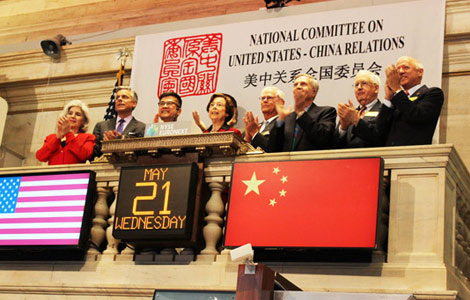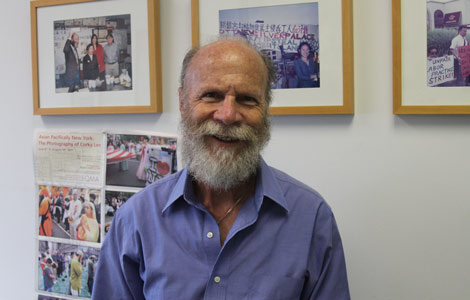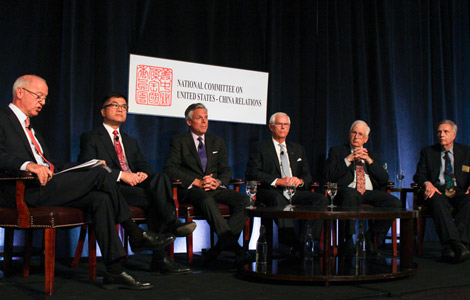'Green' buses join Cup fleet in Brazil
Updated: 2014-05-26 05:56
By Lyu Chang and Feng Zhiwei (China Daily Latin America)
|
|||||||||
Two large hybrid buses from China, which have been tested for about a month, will join diverse fleets in Brazil to carry tourists from all over the world to the FIFA World Cup event.
The low-fuel buses in Curitiba, a host city for the World Cup and capital of Brazil's southern state of Parana, are just the latest effort by CSR Zhuzhou Electric Locomotive Co, a subsidiary of State-owned China South Locomotive & Rolling Stock Corp Ltd to develop electric buses, reducing air pollution in the new emerging market.
The hybrid vehicles, which can handle over 100 passenger trips per vehicle without recharging, will travel routes between the airport and urban area, and has been garnering local approval for their quietness and fuel savings, according to CSR.
The "new energy" bus has been able to reduce typical fuel consumption by up to 35 percent, about 5 percent more than such foreign rivals as Mercedes-Benz and Volvo, along with local Brazilian manufacturers Marco Polo and Neobus, said the company, which is based in Zhuzhou in Central China's Hunan province.
"Although we are not alone in vying for the Brazilian market, the performance of our buses in saving energy at a competitive price is bound to be a substantial advantage," said Chang Jie, CSR Zhuzhou Electric Locomotive Co general manager in charge of the South American market.
The hybrid's integrated chassis and recharging systems were made by CSR, while the body was built in Brazil, which helped reduce the cost of the buses, according to the manager.
"It is good that we cooperate this way, because if we exported finished vehicles to Brazil, the tariff would be very high and raise the cost of the buses," he said.
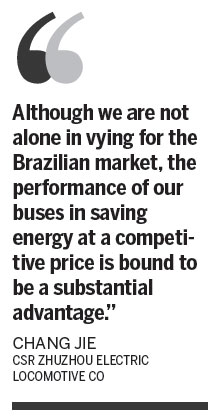
After several years of negotiations, CSR is set to produce about 1,000 buses each year for GULIN, one of the largest public transportation operators in Brazil, if the trial goes well, Chang said.
"We are waiting for the final agreement, which will be signed no later than the first half of next year," he said.
In a country that is making final preparations for the World Cup soccer tournament which will start in June, the trend to develop new energy vehicles is clear, but some daunting challenges remain.
Due to complicated tax policies to attract foreign investment, Chang said that many foreign companies are adopting a wait-and-see approach when they need to establish a further presence in Latin America.
"The hybrid buses along with other electric vehicles need huge investment and therefore it takes longer to generate profits, putting lots of pressure on operators," he said.
"As a result, we need to put a lot of effort into cost control."
The success will establish a good market reputation in South America and mark an important step in China's new-energy automobile industry, which is pursuing a "going global" strategy, the company said.
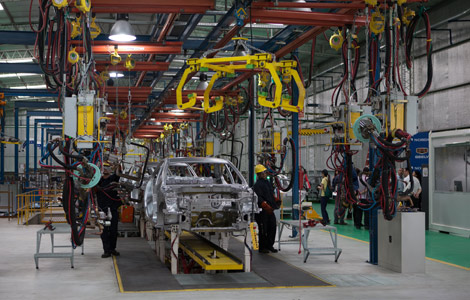
 South America is prime market for Chinese automakers
South America is prime market for Chinese automakers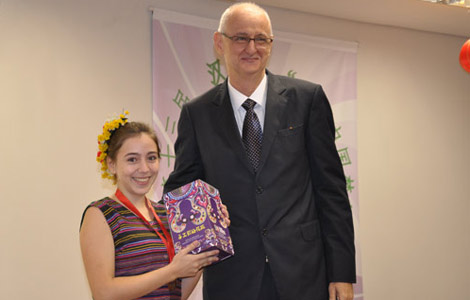
 Brazil names winners for 'Bridge' finals
Brazil names winners for 'Bridge' finals
 37,000 US flags planted in Boston for Memorial Day
37,000 US flags planted in Boston for Memorial Day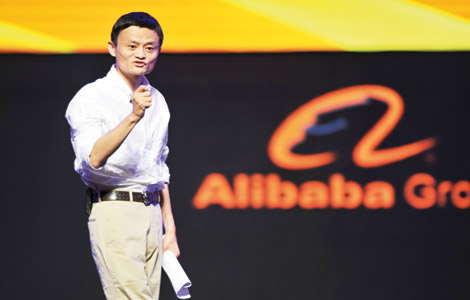
 The multibillion-dollar house that Jack built
The multibillion-dollar house that Jack built
 Highlights of New York Forum Africa
Highlights of New York Forum Africa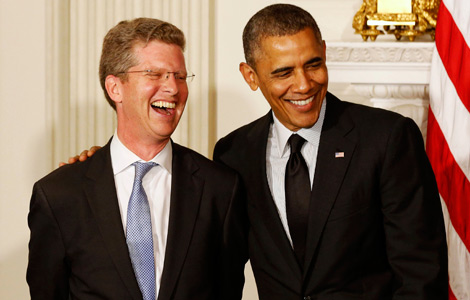
 Obama picks Director of OMB, new Secretary of HUD
Obama picks Director of OMB, new Secretary of HUD
 In photos: aftermath of Santa Barbara campus shooting
In photos: aftermath of Santa Barbara campus shooting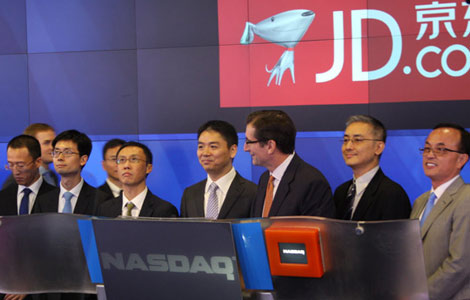
 JD.com makes US debut with $1.78b IPO
JD.com makes US debut with $1.78b IPO
Most Viewed
Editor's Picks
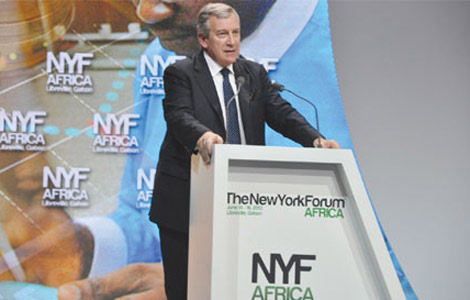
|

|

|

|

|

|
Today's Top News
Obama pays surprised visit to Afghanistan
Senator to renew gun control push
Obama pledges to uphold 'sacred trust' with veterans
22 dead in south China rainstorms
7 dead in drive-by shooting in California
US cyber-scoundrelism to backfire
Van Gogh, Monet works going to US
Republicans try to define Clinton
US Weekly

|

|
